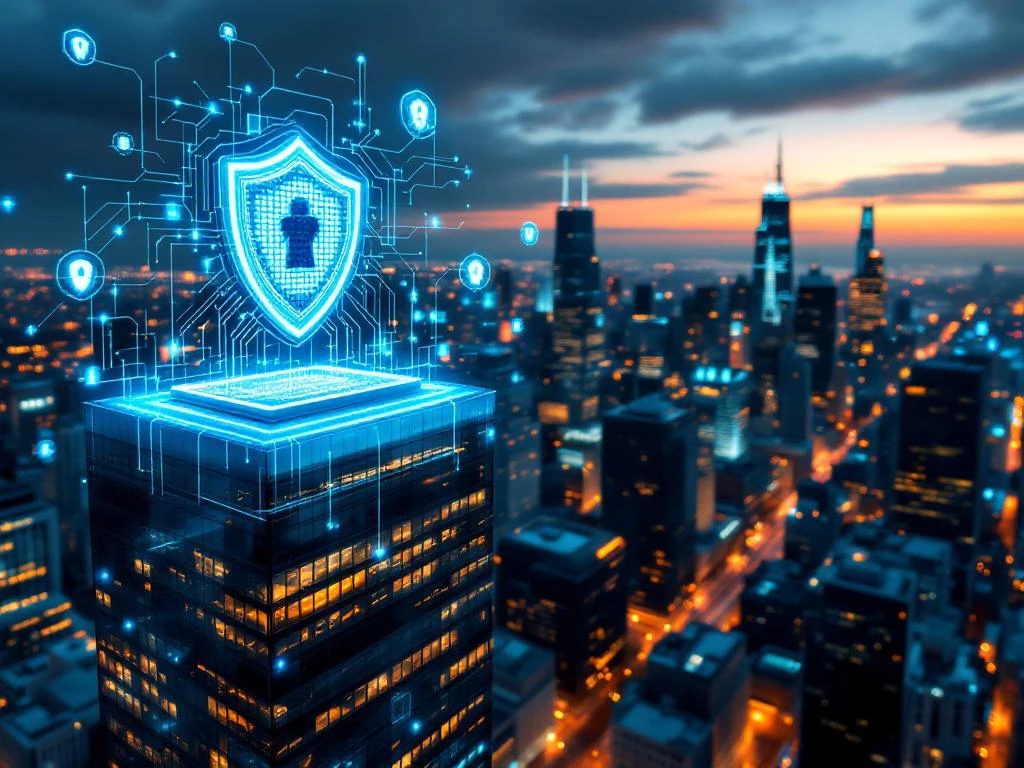Illinois has emerged as the Midwest’s premier destination for cybersecurity professionals, transforming from a traditional industrial hub into a thriving tech ecosystem. Security directors across Chicago and the broader state are building world-class teams by leveraging the region’s unique advantages whilst competing for talent in an increasingly competitive market.
The state’s concentration of Fortune 500 companies, robust financial sector, and growing healthcare technology industry has created unprecedented demand for cybersecurity expertise. Security leaders are adapting their hiring strategies to attract top talent who might otherwise gravitate towards traditional tech hubs on the coasts.
This shift represents more than just geographic preference. It reflects a fundamental change in how organisations approach cybersecurity recruitment, team building, and talent retention in America’s heartland.
Why Illinois became the Midwest’s cybersecurity powerhouse
Illinois transformed into a cybersecurity hub through several key factors that created the perfect storm for industry growth:
- Corporate concentration: The state houses headquarters for major corporations including Boeing, Abbott, and Caterpillar, each requiring sophisticated security operations to protect critical infrastructure and intellectual property
- Financial sector dominance: Chicago’s financial district employs thousands of security professionals across major banks, trading firms, and fintech companies, with the Chicago Mercantile Exchange and Chicago Board of Trade handling trillions of dollars in transactions annually
- Healthcare technology expansion: Organisations like Northwestern Medicine and Rush University Medical Center create constant demand for professionals skilled in HIPAA compliance, medical device security, and healthcare IT protection
- Educational excellence: The University of Illinois, Northwestern University, and DePaul University all offer respected cybersecurity programmes, creating a steady pipeline of local talent who often remain in the region
- Government investment: Illinois has invested in cybersecurity workforce development programmes and created partnerships between academic institutions and private industry, while modernising digital infrastructure
These interconnected elements have created a self-reinforcing ecosystem where corporate demand drives educational investment, which produces skilled graduates, who in turn fuel further industry growth. The combination of diverse industry sectors—from manufacturing to finance to healthcare—provides cybersecurity professionals with varied career paths and the opportunity to develop expertise across multiple domains without leaving the region.
What security directors look for when hiring in Illinois
Security directors in Illinois have developed specific hiring criteria that reflect the unique demands of the regional market:
- Practical experience over theory: Directors prioritise candidates who understand specific challenges facing Midwest industries, particularly financial services, healthcare, and manufacturing sectors with hands-on experience managing real-world threats
- Business acumen integration: Professionals who can translate technical risks into business language for non-technical stakeholders whilst demonstrating understanding of how security decisions impact operational efficiency and revenue
- Communication excellence: Ability to present to executive teams, collaborate with compliance officers, and train employees across diverse organisational functions using clear, persuasive communication tailored to different audiences
- Industry-specific knowledge: Experience with financial regulations like SOX and PCI DSS, healthcare compliance including HIPAA, or manufacturing security protocols that address sector-specific threats and regulatory requirements
- Cultural alignment: Professionals who thrive in collaborative environments and demonstrate Midwest work values like reliability, pragmatism, and team orientation whilst adapting to organisational culture
- Incident response expertise: Real-world experience managing security incidents from initial detection through resolution, including forensic analysis, crisis communication, and business continuity planning
These hiring preferences reflect the mature, relationship-driven business culture prevalent in Illinois, where long-term partnerships and collaborative problem-solving take precedence over rapid scaling and disruption-focused approaches common in coastal tech hubs. Security directors understand that building effective cybersecurity programmes requires professionals who can navigate complex organisational dynamics whilst maintaining technical excellence and delivering measurable security outcomes.
Essential skills that command attention in the Illinois market
Beyond general hiring criteria, specific technical and soft skills consistently attract security directors’ attention:
- Cloud security mastery: Hands-on experience with AWS, Azure, and hybrid environments as organisations migrate legacy systems to cloud platforms, including container security and serverless architecture protection
- Regulatory compliance expertise: Deep understanding of frameworks like SOX, PCI DSS, and HIPAA with experience managing audit processes, documentation requirements, and regulatory reporting
- Risk assessment proficiency: Ability to conduct comprehensive risk analyses, develop mitigation strategies, and communicate findings effectively to leadership teams using quantitative and qualitative metrics
- Automation and orchestration skills: Experience with security automation tools, SOAR platforms, and scripting capabilities that improve operational efficiency and reduce manual security tasks
- Zero trust architecture knowledge: Understanding of modern security frameworks that assume no implicit trust and verify every transaction, particularly relevant for hybrid work environments
These skills reflect the evolving cybersecurity landscape in Illinois, where organisations balance traditional security approaches with emerging technologies and methodologies. Security directors increasingly seek professionals who can bridge the gap between established security practices and innovative solutions, ensuring comprehensive protection whilst enabling business growth and digital transformation initiatives.
How to compete for top cybersecurity talent in Chicago
Chicago organisations have developed sophisticated strategies to attract and retain cybersecurity talent by leveraging regional advantages:
- Total compensation positioning: Whilst salaries may not match Silicon Valley levels, lower housing costs, shorter commutes, and comprehensive benefits packages create superior quality of life value propositions with better work-life balance
- Career growth acceleration: Generous training budgets, conference attendance support, clear advancement pathways, mentorship programmes, and cross-functional project opportunities that fast-track professional development
- Flexible work integration: Hybrid work options, flexible scheduling, and results-oriented performance management that prioritises autonomy and work-life integration whilst maintaining team collaboration
- Technology investment commitment: Access to cutting-edge security tools, modern infrastructure, and adequate resources that enable professionals to work with current technologies rather than outdated legacy systems
- Mission-driven culture: Clear articulation of organisational purpose and genuine commitment to employee wellbeing that creates emotional connection beyond compensation packages
- Impact opportunity emphasis: Positioning roles where professionals can make significant organisational impact whilst maintaining reasonable working hours and sustainable career pace without burnout
Successful Illinois security directors understand that competing for talent requires a holistic approach addressing both immediate professional needs and long-term career aspirations. They recognise that top cybersecurity professionals increasingly evaluate opportunities based on growth potential, work environment quality, and alignment with personal values, creating comprehensive packages that extend far beyond traditional compensation structures.
Proven retention strategies for cybersecurity teams
Keeping talented cybersecurity professionals engaged requires ongoing attention to career development and job satisfaction:
- Career pathing transparency: Clear communication of advancement opportunities, skill development requirements, and timeline expectations that help ambitious professionals plan their growth within the organisation
- Recognition programme implementation: Peer nomination systems, executive recognition ceremonies, and opportunities to represent the company at industry conferences that acknowledge exceptional work and reinforce positive team culture
- Cross-training opportunities: Exposure to different security domains, business functions, and leadership responsibilities that prevent skill stagnation and career plateau concerns whilst building organisational knowledge
- Professional development investment: Support for industry certifications, advanced degree programmes, and specialised training that demonstrates long-term commitment to employee growth and career advancement
- Innovation project participation: Opportunities to lead research initiatives, pilot new technologies, and contribute to strategic security planning that keeps work engaging and intellectually challenging
These retention strategies reflect an understanding that cybersecurity professionals thrive when they feel valued, challenged, and supported in their career development. Security directors who successfully implement comprehensive retention programmes often see reduced turnover, improved team morale, and enhanced security outcomes as engaged professionals contribute more effectively to organisational goals.
Building diverse security teams that drive results
Illinois security directors have embraced diversity as a strategic advantage that directly improves security outcomes:
- Expanded talent pipelines: Partnerships with historically black colleges and universities, women in technology organisations, and veteran transition programmes to identify qualified candidates from underrepresented groups who bring unique perspectives
- Bias-free job descriptions: Careful review of requirements to focus on essential skills rather than nice-to-have qualifications that might discourage diverse candidates from applying, using inclusive language throughout
- Structured interview processes: Diverse interview panels, standardised questioning formats, and clear evaluation criteria that focus on job-relevant competencies to eliminate unconscious bias and ensure fair assessment
- Mentorship and sponsorship programmes: Active championing of diverse talent with structured growth opportunities, career advancement support, and leadership development initiatives
- Inclusive team cultures: Psychological safety environments where all team members feel comfortable contributing ideas, asking questions, and raising concerns without fear of negative consequences
- Adaptive performance management: Recognition of different working styles and communication preferences whilst maintaining consistent performance standards and expectations across all team members
These diversity initiatives reflect a growing understanding that cybersecurity challenges require varied perspectives, enhanced problem-solving capabilities, and improved threat detection that comes from inclusive teams. Security directors who successfully build diverse teams often discover innovative solutions to complex challenges whilst creating more resilient and adaptable security programmes that better serve their organisations’ evolving needs.
Optimising team structure for maximum effectiveness
Beyond hiring and retention, successful Illinois security teams require thoughtful organisational design:
- Specialisation balance: Team structures where members develop deep expertise in specific domains whilst maintaining broad security knowledge to enable cross-functional collaboration and knowledge sharing
- Communication protocols: Regular team meetings, clear documentation standards, and collaboration tools that accommodate different working styles and schedules whilst ensuring information flows effectively
- Inclusive decision-making: Frameworks that leverage diverse perspectives whilst maintaining operational efficiency, ensuring all team members can contribute to strategic planning and problem-solving processes
- Performance measurement systems: Metrics that capture both individual contributions and team outcomes, recognising collaborative achievements alongside personal accomplishments
- Knowledge management practices: Systems for capturing, sharing, and preserving institutional knowledge that prevent single points of failure and enable continuous learning across the team
These structural considerations ensure that well-recruited and diverse teams can function effectively together, maximising the return on investment in talent acquisition and development. Security directors who thoughtfully design their team structures often achieve better security outcomes through improved coordination, enhanced knowledge sharing, and more effective response to complex cybersecurity challenges.
Illinois represents a unique opportunity for organisations seeking to build exceptional cybersecurity teams outside traditional tech hubs. Security directors who understand the region’s advantages, adapt their hiring strategies accordingly, and commit to building diverse, inclusive teams position themselves for long-term success. The combination of strong educational institutions, diverse industry presence, and quality of life advantages creates a compelling environment for cybersecurity professionals at all career stages. We’ve seen this transformation firsthand, helping organisations across Illinois connect with the cybersecurity and eDiscovery talent they need to thrive in an increasingly complex threat landscape.
















